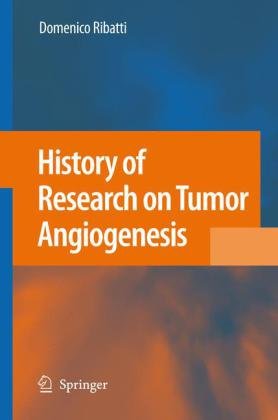

Most ebook files are in PDF format, so you can easily read them using various software such as Foxit Reader or directly on the Google Chrome browser.
Some ebook files are released by publishers in other formats such as .awz, .mobi, .epub, .fb2, etc. You may need to install specific software to read these formats on mobile/PC, such as Calibre.
Please read the tutorial at this link: https://ebookbell.com/faq
We offer FREE conversion to the popular formats you request; however, this may take some time. Therefore, right after payment, please email us, and we will try to provide the service as quickly as possible.
For some exceptional file formats or broken links (if any), please refrain from opening any disputes. Instead, email us first, and we will try to assist within a maximum of 6 hours.
EbookBell Team

5.0
88 reviewsIn 1971, J. Folkman published in the "New England Journal of Medicine" a hypothesis that tumor growth is angiogenesis-dependent. Folkman introduced the concept that tumors probably secrete diffusible molecules that could stimulate the growth of new blood vessels toward the tumor and that the resulting tumor neovascularization could conceivably be prevented or interrupted by angiogenesis inhibitors. Solid and haematological tumors consist of an avascular and a subsequent vascular phase. Assuming that this depends on the release of angiogenic factors, acquisition of angiogenic capability can be seen as an expression of progression from neoplastic transformation to tumor growth and metastasis.
Beginning in the 1980's, the biopharmaceutical industry began exploiting the field of antiangiogenesis for creating new therapeutic compounds for modulating new blood vessels in tumor growth. In 2004, Avastin (Bevacizumab), a humanized anti-VEGF monoclonal antibody, was the first angiogenesis inhibitor approved by the Food and Drug Administration for the treatment of colorectal cancer. At present, it has been estimated that over 20,000 cancer patients worldwide have received experimental form of antiangiogenic therapy.
This book offers a historical account of the relevant literature. It also emphasizes the crucial and paradigmatic role of angiogenesis as a biological process and the significance of antiangiogenic approach for the treatment of tumors.